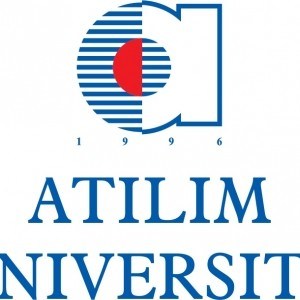Photos of university / #sabanci_university
Mechatronics Engineering at Sabancı University offers a comprehensive interdisciplinary education that merges the core principles of mechanical engineering, electrical engineering, electronics, and computer science to prepare students for innovative solutions in modern industry. The program is designed to equip students with the theoretical knowledge and practical skills necessary to develop advanced mechatronic systems, including robotics, automation, control systems, and intelligent devices. Emphasizing hands-on learning, the curriculum features laboratory works, project-based courses, and industry collaborations that allow students to apply their knowledge in real-world applications. Students engage in designing, prototyping, and testing complex systems, fostering their problem-solving abilities and creativity. The program also stresses the importance of research and development, encouraging students to participate in cutting-edge projects and inherit a strong foundation in recent technological advancements. With a flexible structure, students can tailor their education through elective courses and research opportunities, preparing them for careers in sectors such as manufacturing, robotics, automotive, aerospace, and automation industries. The faculty comprises experienced researchers and industry professionals committed to guiding students toward academic excellence and professional readiness. Graduates of the Mechatronics Engineering program at Sabancı University are well-equipped to contribute to technological innovation, tackle multidisciplinary engineering challenges, and pursue advanced studies or leadership roles in their respective fields. The university's supportive academic environment, state-of-the-art laboratories, and strong industry connections make it an ideal place for aspiring mechatronic engineers to develop their skills and build a successful career.
The Mechatronics Engineering Program at Sabancı University offers a comprehensive curriculum designed to equip students with interdisciplinary knowledge and practical skills necessary for the rapidly evolving field of mechatronics. This program combines fundamentals of mechanical engineering, electrical engineering, computer science, and automation to prepare graduates for careers in robotics, automation systems, manufacturing, and intelligent devices. Throughout the program, students engage in rigorous coursework covering core topics such as mechanics, electronics, control systems, sensors and actuators, embedded systems, software development, and artificial intelligence. The curriculum emphasizes hands-on learning through laboratory experiments, projects, and industry collaborations, enabling students to apply theoretical concepts to real-world challenges. Students are encouraged to develop problem-solving skills, creative thinking, and teamwork abilities, which are vital for innovation in mechatronics applications. The program also fosters research activities and provides opportunities for students to participate in internships and industry projects, bridging academic knowledge with practical experience. Additionally, Sabancı University’s flexible education system allows students to personalize their academic journey by choosing elective courses aligned with their interests, whether in robotics, automation, cyber-physical systems, or industrial applications. By the end of the program, graduates are prepared to pursue advanced studies or enter the workforce as engineers capable of designing, analyzing, and managing complex systems that integrate mechanical components, electronics, and computing technologies. The university’s state-of-the-art laboratories and collaborative environment support students’ development into innovative professionals ready to meet technological challenges in Turkey and worldwide.
Program Requirements
The Sabancı University Mechatronics Engineering undergraduate program mandates applicants to hold a high school diploma or its equivalent from an accredited institution. Prospective students are required to demonstrate proficiency in English, which can be proven through standardized tests such as TOEFL or IELTS, unless they have completed their education in an English-language curriculum. A competitive high school academic record, especially in mathematics, physics, chemistry, and computer science, is essential for admission consideration.
The program emphasizes a strong foundation in science and engineering principles. Incoming students are expected to have completed advanced coursework in mathematics, including calculus and algebra, as well as physics and chemistry, to facilitate a smooth transition into complex engineering concepts. The university values applicants who exhibit problem-solving skills, analytical thinking, and a keen interest in technological innovations.
During the application process, candidates are often required to submit letters of motivation and recommendation, highlighting their interest in Mechatronics and their aptitude for engineering studies. Some admissions may consider entrance exam scores and interviews as part of the selection criteria, aiming to assess the applicant's motivation and potential for success in the program.
Once admitted, students are required to fulfill credit requirements across core courses, including mathematics, physics, computer programming, mechanics, sensors, control systems, electronics, and embedded systems. The curriculum is designed to ensure that students attain multidisciplinary knowledge, combining mechanical, electrical, and computer engineering disciplines. Practical laboratory work and project-based courses form an integral part of the program to equip students with hands-on experience.
Furthermore, students are encouraged to participate in internships, research projects, and industry collaborations to enhance their practical skills and industry readiness. The program also requires students to complete a final year project, demonstrating their ability to apply theoretical concepts to real-world engineering problems.
Graduates from the Mechatronics Engineering program should possess a comprehensive understanding of automated systems, robotics, control systems, and embedded technologies, preparing them for careers in manufacturing, robotics, automation, and related fields. The program prepares students for postgraduate studies and professional certifications, emphasizing continuous learning and innovation in the engineering sector.
The Mechatronics Engineering undergraduate program at Sabancı University offers a comprehensive financing structure to support its students throughout their academic journey. Tuition fees are set annually and are designed to reflect the high-quality education and state-of-the-art facilities provided by the university. For international students, the fees are consistent with those for domestic students, ensuring equitable access to educational opportunities. Sabancı University provides a range of financial aid options, including scholarship programs based on academic achievement, need-based aid, and special scholarships for outstanding talents in science and engineering fields. These scholarships can cover part or all of the tuition fees and are awarded through a selective process that evaluates academic performance, extracurricular activities, and personal achievements. In addition to scholarships, the university offers student loan programs in partnership with financial institutions, enabling students to finance their education with manageable repayment terms after graduation. The university also encourages students to seek external funding sources, such as government scholarships and private sector sponsorships, which can further alleviate financial burdens. To assist students in managing living expenses, Sabancı University provides on-campus housing options at subsidized rates, and some scholarship packages include accommodation support. Moreover, the university regularly updates its financial aid policies to reflect economic conditions and offers financial planning services to students and their families. International students are advised to explore additional funding opportunities available in their home countries, some of which may have partnerships or agreements with Sabancı University. Overall, Sabancı University's commitment to accessible education is demonstrated through its diverse and robust financing options, ensuring that talented students can pursue a degree in Mechatronics Engineering regardless of their financial background.
The Mechatronics Engineering undergraduate program at Sabancı University offers students a comprehensive education that integrates mechanical engineering, electrical engineering, and computer science to prepare them for interdisciplinary roles in industry and research. The curriculum is designed to develop students’ expertise in designing, analyzing, and maintaining intelligent systems and automated devices. Throughout the program, students gain hands-on experience with modern manufacturing and control technologies, robotics, embedded systems, sensors, and microcontrollers. The university emphasizes a project-based learning approach, encouraging innovation and teamwork through laboratory work, design projects, and internships. Students have access to cutting-edge laboratories equipped with the latest tools and software necessary for developing sophisticated mechatronic systems. The program also fosters critical thinking and problem-solving skills, enabling graduates to adapt to rapidly changing technological environments. Career opportunities for graduates include roles in robotics, automation, automotive, aerospace, manufacturing, and consumer electronics industries. Sabancı University's strong industry connections facilitate internships and collaborations with leading technology companies, enhancing students’ practical experience and employment prospects. The program is accredited by relevant national and international bodies, ensuring that graduates meet high standards of engineering education. Overall, the Mechatronics Engineering program at Sabancı University aims to produce well-rounded engineers capable of designing innovative solutions and contributing significantly to the technological advancements across various sectors.








